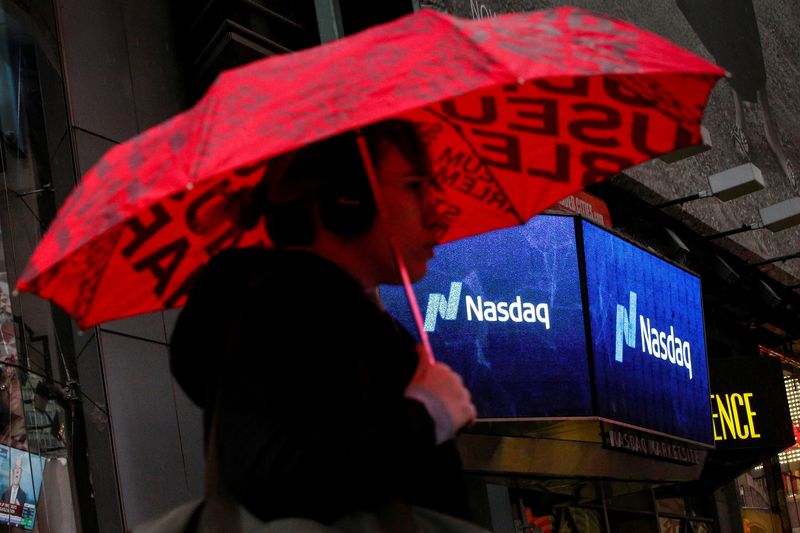Major indexes end sharply lower amid US recession fears, fall in Apple shares

By Caroline Valetkevitch
NEW YORK (Reuters) -Major U.S. stock indexes ended sharply lower on Monday as U.S. recession worries shook global markets and drove investors out of risky assets, while Apple shares (NASDAQ:) dropped as Berkshire Hathaway (NYSE:) cut its stake in the company.
The recession concerns followed weak economic data last week, including Friday’s soft U.S. payrolls report.
Indexes pared losses in late morning after data showed U.S. services sector activity in July rebounded from a four-year low amid a rise in orders and employment.
Shares of Apple fell after Berkshire Hathaway halved its stake in the iPhone maker. Billionaire investor Warren Buffett also let cash at Berkshire soar to $277 billion.
Nvidia (NASDAQ:), Microsoft (NASDAQ:) and Alphabet (NASDAQ:) also slid, while the Cboe Volatility index, Wall Street’s “fear gauge,” rose sharply.
Chicago Fed President Austan Goolsbee downplayed recession fears, but said Fed officials need to be cognizant of changes in the environment to avoid being too restrictive with interest rates.
“Today we’re seeing a sell-off as an extension of that anxiety that was felt last week,” said Neville Javeri, portfolio manager and head of the Empiric LT Equity team at Allspring in Washington.
It “started off with the jobs data last week, and it clearly led to the belief that the Fed needs to start being more proactive around where those unemployment numbers are going,” he said.
According to preliminary data, the S&P 500 lost 159.20 points, or 2.98%, to end at 5,187.36 points, while the Nasdaq Composite lost 567.78 points, or 3.38%, to 16,208.38. The Dow Jones Industrial Average fell 1,030.47 points, or 2.59%, to 38,706.79.
The weak jobs report and shrinking manufacturing activity in the world’s largest economy added to worries following recent disappointing forecasts from the big U.S. technology companies. The on Friday confirmed it was in correction territory.
The so-called Magnificent Seven group of stocks has been the main driver for the indexes hitting record highs this year.
Traders also attributed some weakness in stocks to unwinding of sharp positions of carry trades, where investors borrow money from economies with low interest rates such as Japan or Switzerland to fund their bets in high-yielding assets elsewhere.
U.S. Treasury yields tumbled to their lowest level in a year and a closely watched gap between two- and turned positive for the first time since July 2022, usually indicating the economy is heading into a downturn. [US/]

Traders now see a 92.5% probability that the U.S. central bank will cut benchmark rates by 50 basis points in September, compared with an 11% chance seen last week, according to CME’s FedWatch Tool.
Pringles maker Kellanova soared after a Reuters report said candy giant Mars was exploring a potential buyout of the company.





